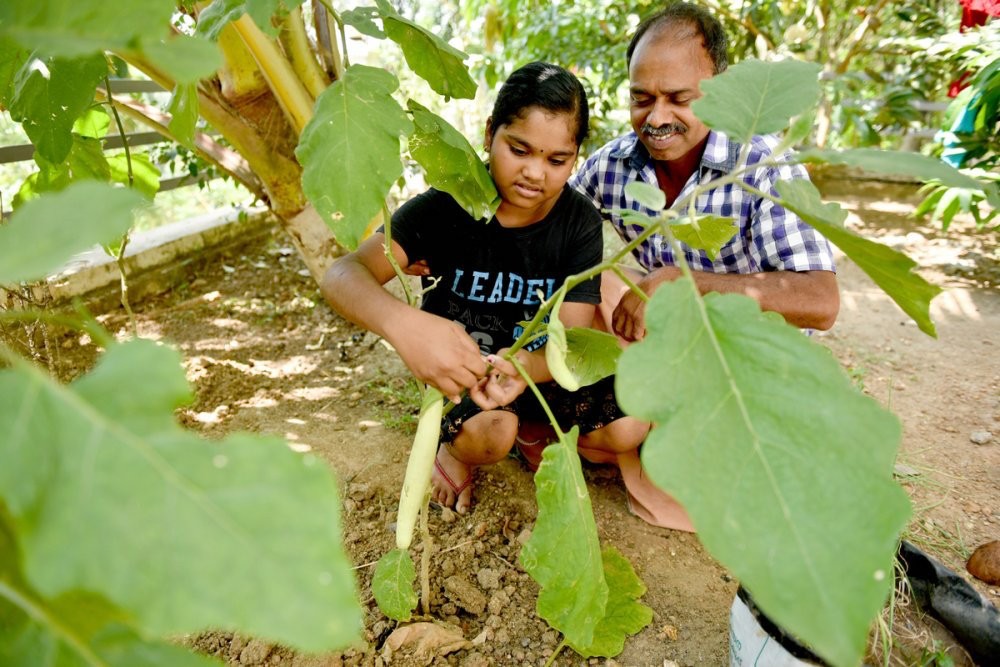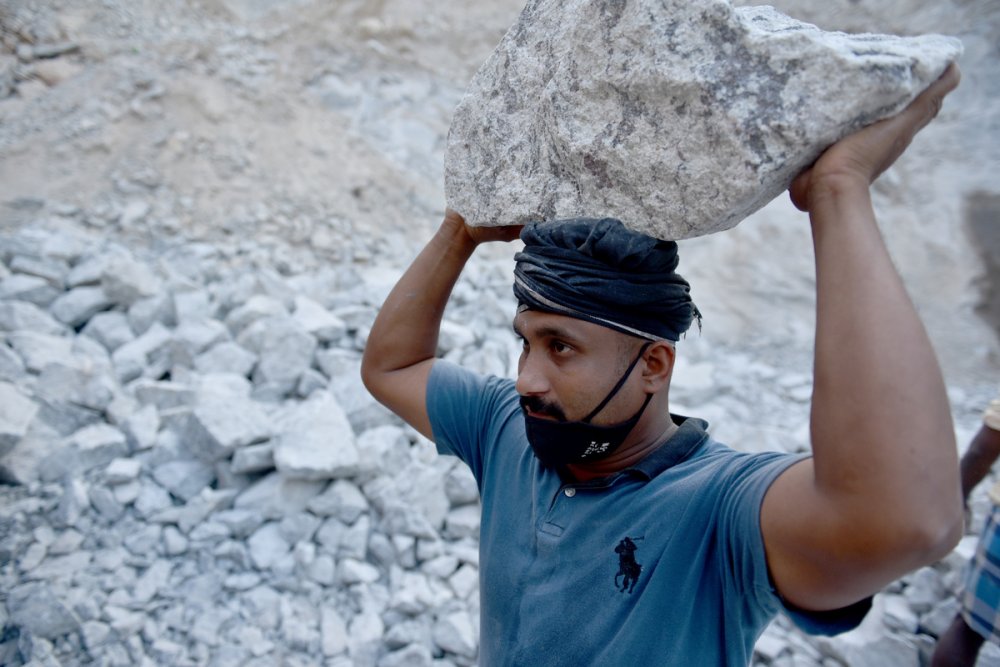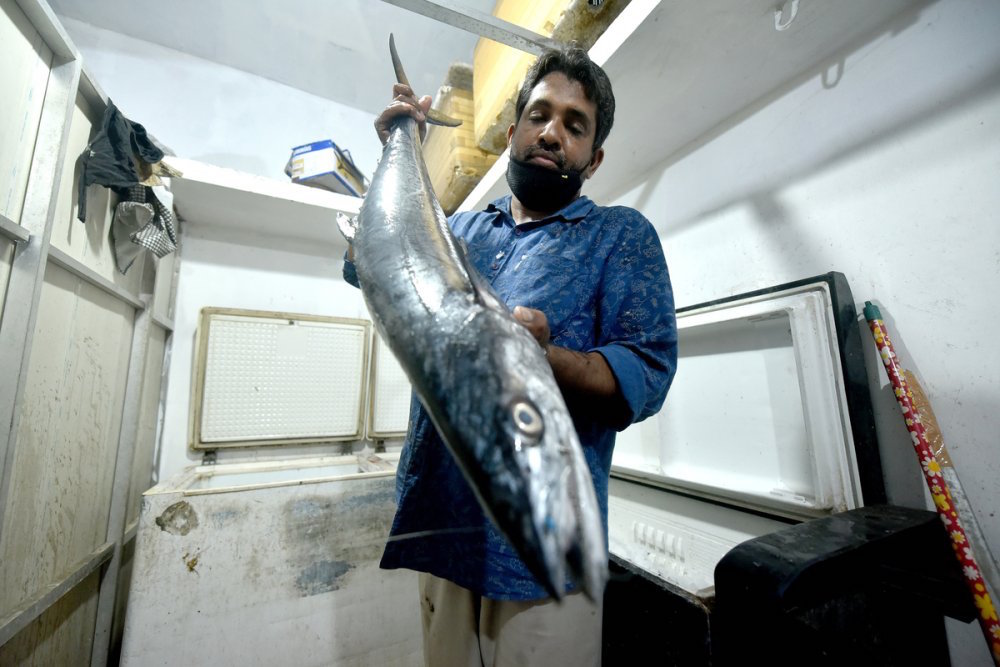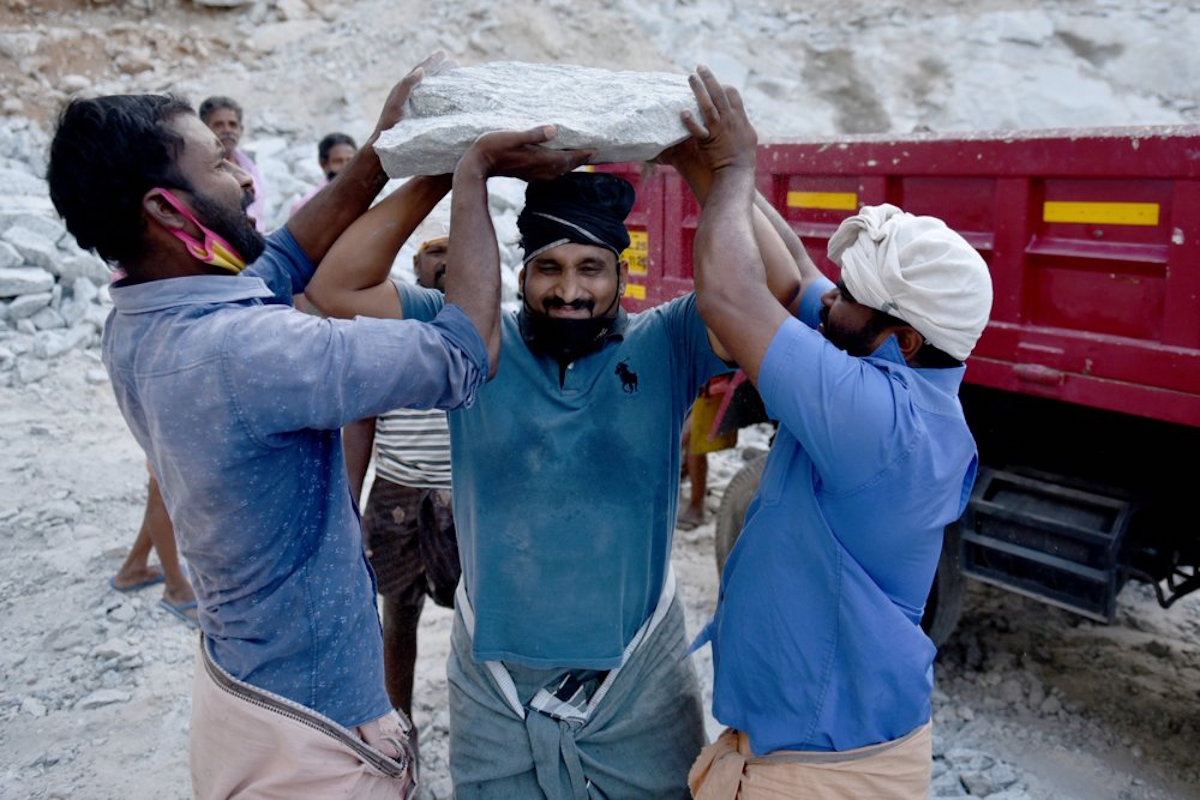It is not yet dawn but Yeroor village is long awake, the hum of productivity floating over ‘Gulf Street’, a lush green boulevard named for the thousands of workers who leave the southern Indian state of Kerala every year for jobs in the Middle East.
But now the workers are back, from machine operator Sudheesh Kumar, who has been forced into manual labor in Yeroor to make ends meet, to former banker Binoj Kuttappan, who has taken up dog breeding in state capital Thiruvananthapuram for a living.
In the single biggest reverse migration in more than 50 years, workers from the Gulf have streamed back to the coastal state of Kerala in the past year, propelled by a pandemic that deflated dreams of overseas riches and changing family fortunes.
Whilst once they came home wealthy and revered, bearing gold, sunglasses, clothes and funds to buy homes, now they have returned sheepish and penniless.
“Prior to COVID, they were celebrated as heroes. Now they have nothing,” said Irudaya Rajan, a professor who has studied migration patterns in Kerala, India’s southernmost state.
“This is the first time they have returned empty-handed and will end up borrowing and selling assets,” said Rajan, professor at the Centre for Development Studies in Kerala.
Kerala is one of the states that sends the most workers to the Gulf, accounting for about 2.5 million of 6 million Indians there. Kerala received about 19 percent of $78.6 billion transferred to India from overseas workers in 2018, the highest state tally in the country that is the world’s top recipient of remittances.
But more than 1.1 million people have returned in the last 10 months, 70 percent having lost their jobs as domestic workers, builders, waiters, chefs and more, official data shows.
This has upended workers and their families’ lives, and destroyed businesses dependent on the India-Gulf migration.
The evidence is plain to see in the 13,000-strong population of Yeroor.
While Gulf Street is lined by rows of neat, whitewashed bungalows built with money earned overseas, a nearby stone quarry is billowing out clouds of dust as workers start drilling and digging even before the sun is up.

Kumar, 50, spent 22 years in the Middle East, with his final job in Saudi Arabia operating machines at Jeddah airport’s waste water treatment where he earned triple the average Kerala wage.
In March 2020, he flew home — briefly, he thought — but flights were grounded in a bid to contain the new coronavirus.
Now the father of two splits his time between farm labor and the stone quarry, a reversal of fortunes he’d never envisioned when he first ventured overseas.
“I had planned my life when I left 22 years ago. I had any ordinary man’s dreams — a house, good education for my children,” a deflated Kumar told the Thomson Reuters Foundation outside his house, sweat beading his brow.
During the Gulf War 30 years ago and the 2008 financial crisis many workers were forced back to Kerala, but this time the numbers are far higher number and the job market tighter.
State officials say they have already helped 1,000 people with subsidized loans to launch their own ventures.
A nationwide initiative linking returnees with jobs has notched up more than 30,000 registrants, about 80 percent of them from the Gulf States of Bahrain, Kuwait, Qatar, Saudi Arabia, United Arab Emirates and Oman, according to a government release.
Shamna Khan, 30, whose right leg is badly swollen by lymphoedema, never needed to work because her husband Shafir sent enough money home from his job in a glitzy Qatar mall.
The couple turned their mud and clay house to concrete, laid tiles, built an indoor bathroom and got help for Shamna’s leg.

But after Shafir returned jobless last March, Shamna registered for India’s rural job scheme for about 300 rupees a day that guarantees a minimum 100 days of work in their village such as building roads, digging wells and trenches at farms.
“I am happy to work as I can support my family, but my leg is prone to infections,” said Shamna, as she dug a trench at the village’s rubber plantation.
Sharif, who works at the quarry, worries about the looming uncertainty, his unpaid loans — and Shamna’s health.
“All I wanted was to provide for my family, get my wife treated and send our son to a good school,” Sharif said. “There is no other work here.”
More than 90 percent of Indian migrant workers, most of whom are low- and semi-skilled workers, work in the Gulf region and South-East Asia, according to the United Nations.
Connecting them with jobs are recruitment agencies and travel firms which match workers with employers and book them on flights — a hectic business that Ajimon Mak, 45, nurtured for 14 years in Kerala’s capital Thiruvananthapuram.
“Ticketing was my main business, it was a passion and I was always busy. During the lockdown I saw it all go down to zero,” said Mak, lifting a tuna by its tail from the freezer in his newly-opened fish shop in Thiruvananthapuram, Kerala’s capital.
To fill the gap Mak moved into fish mongering, initially taking orders online and running home deliveries but then also renting a shop.
“People will always need food,” he said.

Former banker Binoj Kuttappan, 40, also forged a new path after returning to Thiruvananthapuram from Abu Dhabi last year following layoffs at his financial service company and decided to turn his passion for dogs into a breeding business.
“I would have never done this if not for the pandemic,” said Kuttappan, showing off seven dogs — a golden retriever, a Labrador and a Great Dane among others — that he bought for 150,000 rupees.
With plans for a pet accessories shop, a garden for dogs and air-conditioned kennels, he has no plans to return to the Gulf — but others are counting the days until they can go back to higher earnings.
At a slum in Thiruvanthapuram, Kala Malliga earns 300 rupees a day by making and selling up to 1,000 paper bags after her husband lost his job as a salesman at a local market. She hopes he finds work in the Gulf some day.
Shafir Khan plans to seek work at Lulu Mall that is being built in Thiruvananthapuram, while Sudheesh Kumar has started calling up agencies seeking work in the Gulf.
“My savings for our future are gone and now our future looks bleak,” said Kumar. “I no longer think of making a profit. I only think of surviving the day.”
By Roli Srivastava and Rakesh Nair for the Thomson Reuters Foundation, the charitable arm of Thomson Reuters, that covers the lives of people around the world who struggle to live freely or fairly.







